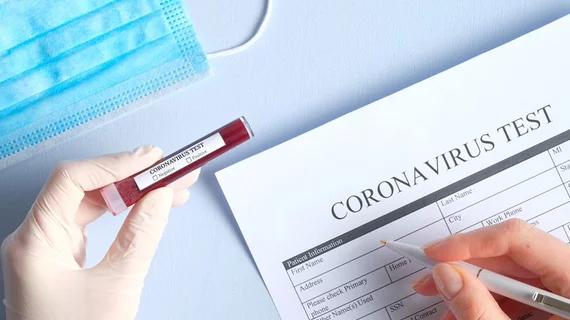ACC, ATA push for expanded use of telehealth to fight COVID-19
The American College of Cardiology, American College of Physicians and other industry groups are pushing for the expanded use of telehealth in combating the new coronavirus, or COVID-19.
Though COVID-19 has disproportionately affected the Chinese population—as of March 4, just 80 cases and 9 deaths had been confirmed in the U.S.—Congress on March 5 approved an $8.3 billion package to fight the spread of coronavirus. According to Health Exec, the package includes $950 million that will be distributed across states, localities, territories and tribes to help with virus surveillance, testing and infection control; $2.2 billion for public health measures to prevent the spread of the virus, $1 billion for overseas aid; and $3 billion for the research and development of COVID-19 vaccines, therapeutics and diagnostics.
The package also included provisions for waiving Medicare telehealth restrictions—something the ACC, ACP and other organizations were likely happy to hear.
“The ACC and ACP encourage policymakers to consider the important role digital and telehealth services can play to mitigate community spread while allowing clinicians to continue caring for patients,” ACC President Richard J. Kovacs, MD, and ACP Executive Vice President and CEO Derilyn V. Moyer, MD, said in a joint statement March 2. They noted that self-quarantine and social distancing are “important tools” for mitigating disease transmission.
“Therefore, our organizations urge steps be taken to create defined, emergency authority to expand access to telehealth services in all areas, ensuring clinicians have the necessary flexibility to continue caring for their patients remotely during this rapidly evolving public health response,” the leaders wrote.
On March 5, after Congress approved its $8 billion-plus package to fight coronavirus, the American Telemedicine Association (ATA) released a statement saying it was “heartened by the swift actions being taken by Congress to put the right tools in the hands of healthcare professionals.” CEO Ann Mond Johnson said she urged CMS to implement its waiver authority “as soon as possible” to ensure that healthcare providers understand the new provisions and can deploy virtual services quickly.
The ATA said telehealth and other virtual care solutions can easily improve access to care and treatment for COVID-19 while limiting person-to-person spread of the virus.
“Telehealth is well-suited to provide one-to-many care that is safe, effective and efficient,” Mond Johnson said. “We are seeing the significant value telehealth offers, not only in public health emergencies but also in day-to-day care delivery.”

